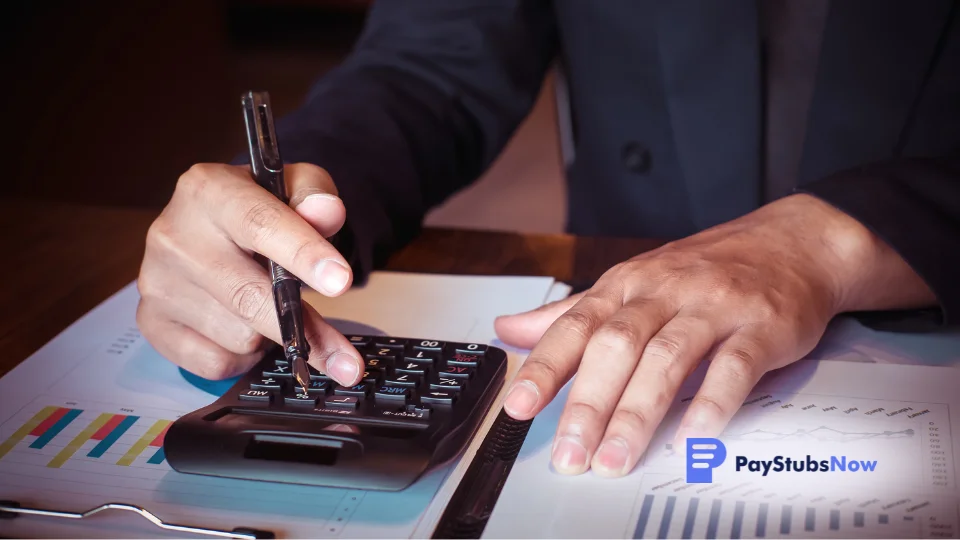How To File Taxes as an Independent Contractor: A Guide
If you recently transitioned from a job to being an independent contractor—congratulations on taking the big leap! Being your own boss undeniably offers a sense of freedom and control, which can be rewarding for individuals who thrive in independent roles. But with this newfound freedom comes the responsibility of handling your own taxes.
Independent contractors often end up making the switch, not taking the time to think about how they'll do the taxes and, more importantly, to understand the inherent complexities of tax calculations and the implications of failing to meet the tax deadlines.
In this one-stop guide, we’re walking you through the steps of how to file taxes as an independent contractor. We’ll cover everything from understanding your tax obligations to taking advantage of deductions and credits, offering practical tips and insights to help you cut through the clutter of self-employment taxes and file taxes in a smooth and stress-free manner.
Main Takeaways of Independent Contractor Taxes:
- Understanding your tax obligations as an independent contractor is crucial for staying compliant and avoiding penalties.
- Keeping detailed records of your business income and expenses throughout the year can streamline the tax filing process.
- Taking advantage of available deductions and tax credits can significantly lower your tax liability.
- Using services like Paystubsnow can simplify the process by generating accurate pay stubs and 1099 forms for detailed financial records.
What Is an Independent Contractor?

An independent contractor is someone who operates independently as a self-employed individual, providing services or products to various clients or organizations. They maintain control over how they complete their work, set their own schedules, and often use their own tools and resources.
Unlike employees, who receive regular paychecks with taxes withheld by their employer, independent contractors are responsible for managing their finances and filing their own taxes.
How to File Taxes as An Independent Contractor
A gradual approach to filing taxes as an independent contractor may overwhelm you, so doing your homework to plan ahead of the tax season is necessary to manage the entire process smoothly. This section lists the essential steps you'll need to follow, from understanding your tax obligations and making the most of tax deductions to maintaining regulatory compliance.
1. Understand Your Tax Obligations as an Independent Contractor
As an independent contractor, you don't have an employer withholding taxes on your behalf. Instead, you are responsible for all aspects of tax payment. You will need to pay income tax, federal income taxes, state income taxes, as well as Social Security taxes, and Medicare taxes, which are often referred to as self-employment taxes. The IRS requires independent contractors to pay these taxes quarterly to avoid penalties.
You must also understand that independent contractors are subject to a different set of rules compared to traditional employees. For instance, instead of receiving a W-2 form, you’ll receive a 1099-NEC form from each client who pays you $600 or more in a year. This form reports your annual earnings but doesn't withhold any taxes, making it crucial for you to set aside money for your tax obligations.
Make sure to familiarize yourself with the IRS guidelines and stay updated on any changes to tax laws that might affect you as an independent contractor.
2. Track Your Business Income and Expenses

Accurate record-keeping is essential for anyone working as an independent contractor to calculate their taxable income, claim deductions, and ensure compliance with tax regulations. Tracking your income and expenses also provides valuable insights into your business's financial health.
Paystubsnow can be a valuable tool in this process. Here's how:
- Easy-to-Use Platform: Paystubsnow provides an intuitive platform for generating and sharing financial documents like pay stubs and tax forms, making it easy to access and reference key information when tax time rolls around.
- Tax Form Generation: While tax filing remains your responsibility, Paystubsnow takes the hassle out by generating the essential tax forms, such as 1099s, simplifying the process.
By using Paystubsnow, you can save time, reduce errors, and ensure that your financial records are ready for tax season.
3. Calculate Your Quarterly Estimated Tax Payments
To calculate your quarterly estimated tax payments, you need to estimate your adjusted gross income, taxable income, taxes, deductions, and credits for the year. Here's a method to go about this process:
- Estimate Your Annual Income: Add up all your expected income sources for the year.
- Subtract Business Expenses: Deduct any business expenses you plan to incur. This gives you your adjusted gross income.
- Calculate Taxable Income: Subtract any deductions (like the standard deduction or itemized deductions) from your adjusted gross income to find your taxable income.
- Apply Tax Rates: Use the current year's tax rates to calculate the tax on your taxable income.
- Subtract Credits: If you're eligible for any tax credits, subtract them from your calculated tax.
- Determine Quarterly Payments: Divide the total tax due by four to get your quarterly estimated tax payment.
Missing or underpaying these can result in penalties from the IRS. Paystubsnow can help by providing accurate financial records to ensure your estimates are as precise as possible.
4. Take Advantage of Self-Employment Tax Deductions and Credits

As an independent contractor, you can deduct certain business expenses from your taxable income, which can reduce your overall tax liability. These deductions can include:
- Office Expenses: Rent, utilities, supplies, and equipment
- Travel Expenses: Mileage, lodging, and meals related to business activities
- Professional Fees: Accounting, legal, and consulting services
- Education Expenses: Continuing education related to your profession
If you meet the eligibility requirements, you may also be eligible for certain tax credits, such as:
- Self-Employment Tax Credit: This credit can reduce your self-employment tax liability.
- Child and Dependent Care Credit: If you have qualifying children or dependents, you may be eligible for this credit.
Consulting with a tax professional can help you determine if you qualify for any of these credits and how you can claim them.
5. Complete and Submit the Correct Tax Forms
Once you've calculated your income and expenses, you need to complete and submit the correct tax forms.
As an independent contractor, you need to focus primarily on IRS Form 1040 (Schedule C), where you report your business income and expenses, and the 1099 Form if you received $600 or more in a year from each client you work with. In addition to these forms, if you expect to owe $1,000 or more in taxes, you'll need to make quarterly estimated tax payments using IRS Form 1040-ES.
Don't overlook Schedule SE, which calculates your self-employment taxes. These taxes cover Social Security and Medicare, and they are crucial since you don't have an employer withholding these taxes for you. You can conveniently generate the 1099 Form using the Paystubsnow platform, which makes it easy for independent contractors to neatly organize their tax records for tax season.
6. File Your Taxes by the Deadline
The deadline for filing your federal income tax return is April 15th of the following year. However, you can request an extension if needed. Be aware that even if you file an extension, you're still responsible for paying any taxes owed by the original deadline to avoid penalties and interest charges.
Filing can be done in one of the two ways below:
- Using Tax Software or a Tax Professional:Tax software can help you complete your forms accurately and efficiently. A tax professional can offer personalized advice and ensure you're taking advantage of all available deductions and credits.
- E-Filing: Filing electronically is the fastest and most secure way to file your taxes.
7. Stay Organized for Future Tax Seasons

Keeping your financial records in order can make filing a breeze, not just for this tax season but for future ones as well. Investing time now can save you a lot of stress later.
Here are some practical steps you can take to stay organized:
- Maintain a Separate Business Account: Keep your personal and business finances distinct. A separate bank account for your business can help you easily track your income and expenses.
- Use a Dedicated Financial Management Tool: Employing tools like Paystubsnow can streamline your recordkeeping. The platform helps generate accurate 1099 forms and provides detailed financial records, which can simplify your tax filing process.
- Keep Copies of Receipts and Invoices: Maintain receipts and invoices. Paper receipts can easily get lost or damaged, so try using apps to make digital copies of all your receipts and invoices.
- Set Aside Funds for Taxes Quarterly: This helps avoid a last-minute scramble come tax season.
- Schedule Regular Check-Ins With Your Finances: Review your income and expenses to ensure your budget is on track and identify any potential tax deductions.
If you’re unsure about the best ways to stay organized, consulting a tax professional can help you get personalized advice for your business needs.
Streamline Your Tax Filing With Paystubsnow
Maintaining financial records, tracking tax deadlines, and consulting with your CPA can take up a lot of time. Why not simplify one area of your business operations that will help everything else fall into place?
At Paystubsnow, we offer a comprehensive solution for independent contractors to simplify their tax filing process. Here's how:
- State-Specific Compliance: Paystubsnow takes care of compliance with individual state regulations while generating 1099 forms to help you ensure you're always on the right side of the law.
- Turnkey Faster Solution: The platform is designed to be user-friendly, saving you valuable time on recordkeeping and tax preparation. Its intuitive interface and streamlined processes make it easy to generate the necessary forms for tax filing.
- 24/7/ 365 Customer Support: When you need help, our friendly customer support team is always available to answer questions, provide guidance, and resolve any issues promptly.
- Customizable Solutions: Paystubsnow understands that every independent contractor's needs are unique. Whether you need help with paystub generation or tax-time preparation, Paystubsnow fits your specific requirements.
Are you ready to get started with Paystubsnow and simplify your tax filing process?

